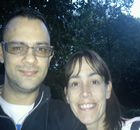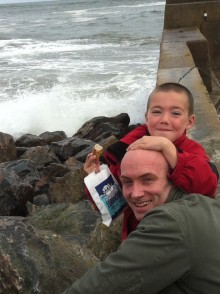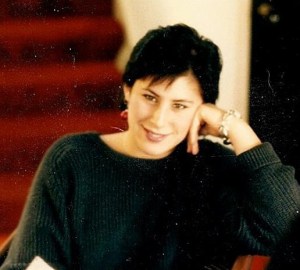The purpose in my life, I’ve been blessed to find, is to carry the message of recovery. … Integrity is, for me, to live true to that calling. Philip Valentine ’87 (CLAS)
On Oct. 18, 1987, Phillip Valentine was in the birthing room at Rockville General Hospital in Vernon, Conn., high on cocaine and waiting for the arrival of his first child, a baby girl. He describes what happened next as a religious experience.
“I was in a kind of cocaine-induced haze, and when my daughter looked into my eyes, there was so much love and spiritual power,” he says. “That’s when God burned his way into my soul and said, ‘You’re not alone.’”















